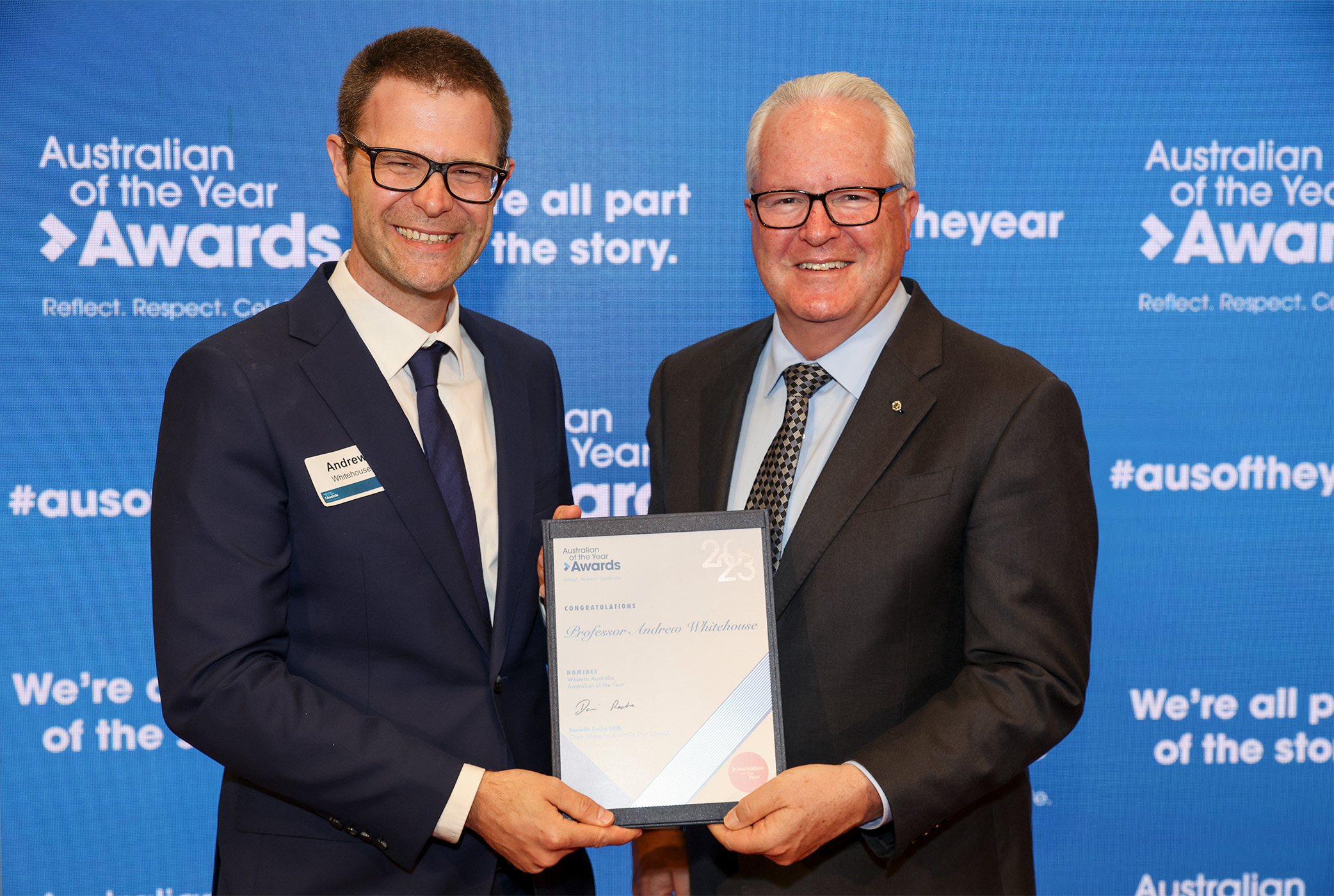Search
Showing results for "autism"
Rett syndrome (RTT) is an X linked neuro-developmental disorder affecting mostly girls. Mutations in the coding region of MECP2 are found in 80% of classic...
A translocation that disrupted the netrin G1 gene (NTNG1) was recently reported in a patient with the early seizure variant of Rett syndrome (RTT).

Congratulations to CliniKids Director Professor Andrew Whitehouse on his recent nomination for WA's Australian of the Year Award.
Pathogenic variants in the cyclin-dependent kinase-like 5 (CDKL5) gene are associated with CDKL5 deficiency disorder (CDD), a severe X-linked developmental and epileptic encephalopathy.
Parenting is a rewarding experience but is not without its challenges. Parents of Autistic children face additional challenges, and as a result can experience lower levels of wellbeing and more mental health problems (i.e., depression, anxiety, stress). Previous studies have identified concurrent correlates of wellbeing and mental health.
This systematic review aimed to identify the most important social, environmental, biological, and/or genetic risk factors for intellectual disability.

Research Fellow
Speech Pathologist

Senior Research Fellow
PACT is a communication therapy at CliniKids
